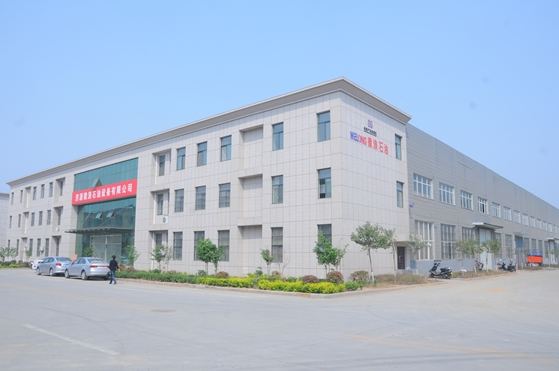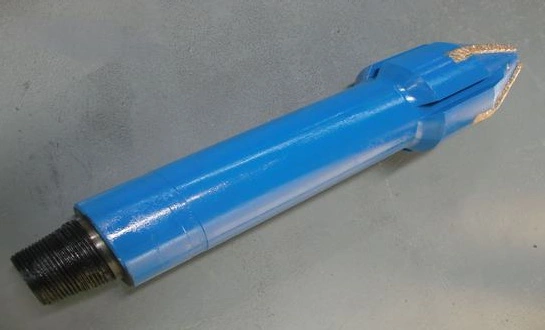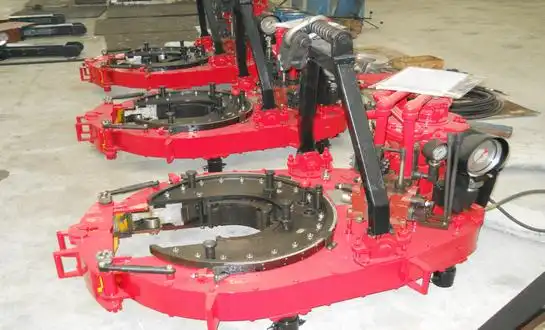The Importance of Casing Integrity in Oil and Gas Wells
Well Longevity and Structural Stability
For oil and gas wells to remain structurally stable and long-lasting, casing integrity is crucial. Throughout its operating life, a well-maintained casing system gives the wellbore the support it needs to avoid collapsing and keep its shape. For a variety of good operations, such as production, injection, and workover activities, this stability is essential. By resolving problems like scale building, debris collection, or mechanical degradation that could jeopardize the casing's structural integrity, taper mills help to ensure this stability.
Environmental Protection and Safety
Protecting the environment and ensuring the safety of good operations depend on maintaining casing integrity. A compromised casing can result in leaks, groundwater contamination, and possible surface spills. By restoring and maintaining casing integrity with taper mills, operators can drastically lower the risk of environmental incidents and guarantee regulatory compliance. This proactive approach to well maintenance not only protects the environment but also improves the overall safety of drilling and production operations.
Cost-effectiveness and operational efficiency
In the production of oil and gas, well-maintained casings enhance operational performance and cost-effectiveness. Operators can save money on downtime related to well failures or emergency repairs by keeping the casing in good shape. Regular maintenance procedures that include taper mills assist stop problems before they become serious, which could ultimately result in significant resource savings. In the end, this preventive strategy improves drilling contractors' and oil corporations' profitability by enabling more predictable operations and better resource allocation.
Taper Mill Design and Functionality
Cutting Structure with Tapers
The tapered cutting structure is what distinguishes a taper mill. This design makes it possible to remove material from the casing wall gradually and carefully. The tapered form allows the tool to gradually increase its cutting width while navigating past obstructions or damaged areas of the casing. Taper mills can handle a variety of casing integrity problems, from little obstructions to more serious damage, thanks to this special design, all without affecting the wellbore's overall structure.
Cutting Materials and Components
Taper mills have specific cutting components made to effectively remove a variety of materials found in well casings. Polycrystalline diamond (PCD) and tungsten carbide are two examples of hard, wear-resistant materials that are commonly used to make these cutting components. The type of material to be milled and the particular application determine which cutting components are used. Certain taper mills can be customized to meet the specific casing integrity requirement at hand thanks to their interchangeable or removable cutting components.
Movement of Fluids and Elimination of Debris
Retaining the effectiveness of taper milling processes requires efficient debris removal. Milled material may be continuously flushed away from the cutting surface thanks to the fluid circulation passages included into taper mills. The mill can continue to cut effectively throughout the operation thanks to this circulation mechanism, which also helps to avoid blockage. Additionally, the fluid circulation helps to cool the cutting components, which improves the tool's longevity and effectiveness throughout prolonged milling operations.
Applications of Taper Mills in Casing Integrity Maintenance
The removal of scale and deposits that build up over time is one of the main uses of taper mills in casing integrity maintenance. If these deposits are not removed, they can restrict flow, make it difficult to operate the well, and possibly cause more serious casing damage. By efficiently scraping away these deposits, taper mills return the casing to its original internal diameter and guarantee ideal flow conditions. This use is especially beneficial in mature wells where scale buildup is a frequent problem.
Repair of Mechanical Damage
When it comes to fixing well casing mechanical damage, taper mills are essential. Wear from drilling operations, corrosion, or outside forces acting on the wellbore are some of the causes of this damage. Taper mills can repair the integrity of the casing and stop additional deterioration by carefully grinding away damaged or deformed areas. Maintaining the well's structural stability and preventing possible breakdowns that can result in expensive production halts or environmental issues require this application.
Getting Ready for Sidetracking Activities
Taper mills are a piece of essential equipment for casing preparation in situations where sidetracking or re-drilling operations are required. They can produce a tapered, smooth surface that makes it easier to start a new wellbore trajectory. This preparation guarantees the smooth and trouble-free execution of subsequent drilling operations. In these situations, the accurate control provided by taper mills allows for the successful implementation of intricate well intervention tactics while preserving the integrity of the existing casing.
Conclusion
For those looking for high-quality taper mills and professional advice on their application in casing integrity maintenance, please contact us at oiltools15@welongpost.com. Our team is committed to offering creative solutions that meet the changing needs of the oil and gas industry. Taper mills are essential tools for addressing a wide range of casing-related challenges because of their unique design and versatile applications. By successfully removing obstructions, fixing damage, and preparing casings for advanced operations, taper mills significantly contribute to the safety, efficiency, and longevity of well systems.





